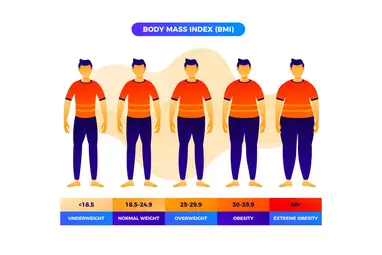How to improve your sleep

How to improve your sleep
Posted on 9th Aug, 2022For a healthy life, a good night’s sleep is as important as a nutritious diet and regular exercise. Poor sleep has negative effects on hormones, brain function as well as performance during exercise or any sports activity. To sleep better at night, try the following activities:

Woman sleeping comfortably on her pillow
Avoid long daytime naps

Power naps
Short power naps are beneficial for health but napping too much during the day, especially long and irregular naps can have a huge negative effect on sleep quality. Sleeping during the daytime can confuse your internal clock which will result in being unable to get good quality sleep during the night. Naps of more than 30 minutes can harm health. But if you take naps that are regular and of short duration, there’s no need to worry. The effects of napping also vary from individual to individual. Notice your patterns and if you have trouble sleeping, try to stop napping altogether or make them short.
Optimize the bedroom’s temperature and environment

Warm and comfortable environment for sleep.
The bedroom’s temperature and environment can profoundly affect the quality of sleep. During summers or in hot locations, getting good quality sleep can be very hard. You can try different room temperatures and take note of your quality of sleep. It is a very individual choice so make sure to keep note of your sleep patterns in different temperatures. Apart from temperature, one more important thing is the environment of your bedroom. Things like noise, external lights, and furniture arrangements are all important factors to consider when designing your bedroom. Try to minimize external noise, light, and artificial lights from devices and make the room as quiet and relaxing as you can.
Take a relaxing bath or shower

A relaxing bath with lukewarm water can help you sleep better and improve your quality of sleep. It will not only improve your sleep quality but also will help fall asleep faster. If you do not want to take a shower, try simply bathing your feet in warm water. This will make you relaxed and improve your sleep.
Don’t drink liquids or eat food before bed

Drinking large amounts of liquids or eating a large meal right before going to bed will impact the quality of your sleep. Try to avoid drinking or eating too much 1 to 2 hours before bed. Consuming a very big meal before bed leads to hormone disruption and hence reduces the quality of sleep. Try to make a habit of eating at a regular time every day 1 or 2 hours before you go to bed. Drinking excessive amounts of water can result in frequent urination during the night called nocturia. Use the bathroom right before going to bed, as this will decrease the chances of waking up during the night.
Do not exercise before bed

No exercise before bedtime.
Exercise can help you improve your sleep and overall health. It can also help reduce insomnia. Daily exercise is important for quality sleep, but if it is done too late during the day it can decrease the quality of sleep. This is because exercise causes stimulation and makes the body alert by releasing hormones like adrenaline and epinephrine. However, regular exercise during daylight is an excellent way to improve sleep.
Try sleep supplements

Supplements for sound sleep.
There are a lot of sleep supplements that can help improve the quality of sleep. Some of these supplements are Melatonin, Methylcobalamin, 5-HTP( 5-Hydroxytryptophan ), and Magnesium. Melatonin is effective in inducing and maintaining sleep. Methylcobalamin or Vitamin B12 helps with sleep-wake disorder. Magnesium can produce a calming effect, reduces stress, and promotes relaxation and restful sleep. 5-HTP can help with promoting and maintaining sleep. Make sure you consult with your doctor before starting with any supplement.
Check with your doctor for sleep disorders

Consult a doctor to resolve sleep issues.
If you are unable to sleep even after all these strategies, there could be an underlying sleep disorder. Another possibility is having any health condition that is indirectly impacting your sleep. One of the most common sleep disorders is sleep apnea. Sleep apnea results in inconsistent and interrupted breathing while sleeping. There are certain disorders that are common in shift workers. For example, sleep movement disorder, circadian rhythm sleep/ wake disorders, etc. If you have been struggling with sleep for a long time, consult your doctor to rule out any medical condition.
Sleep well!
Although there are challenges all around that are keeping us from having a peaceful sleep, it is possible to improve the quality of sleep with few changes. Try to make sleep a top priority and include the tips mentioned above.
Health articles from our experts

A Comprehensive Guide On How To Gain Weight Quickly

Muscle-Building Routine and Supplements for Maximum Gains

A Guide with Simple Tips To Follow For Weight Loss

Top 10 Foods That Are High in Protein

5 Best Whey Protein Powders in India

Understanding BMI: The Key to Weight-Health Connection

List of Top Whey Proteins for Muscle Gain

Top Vitamins for a Healthy Immune System

Finding Out the Best Daily Wellness Supplements

